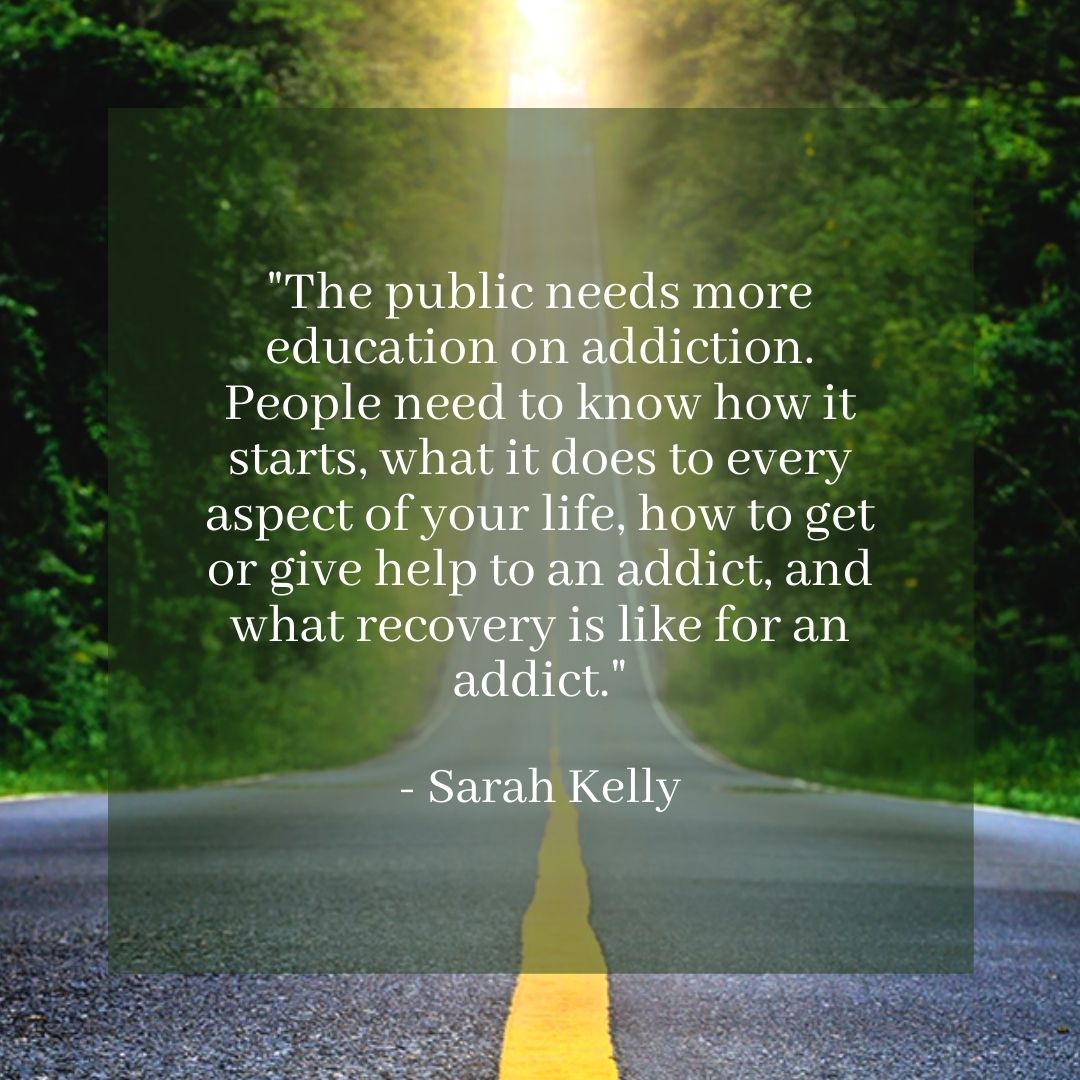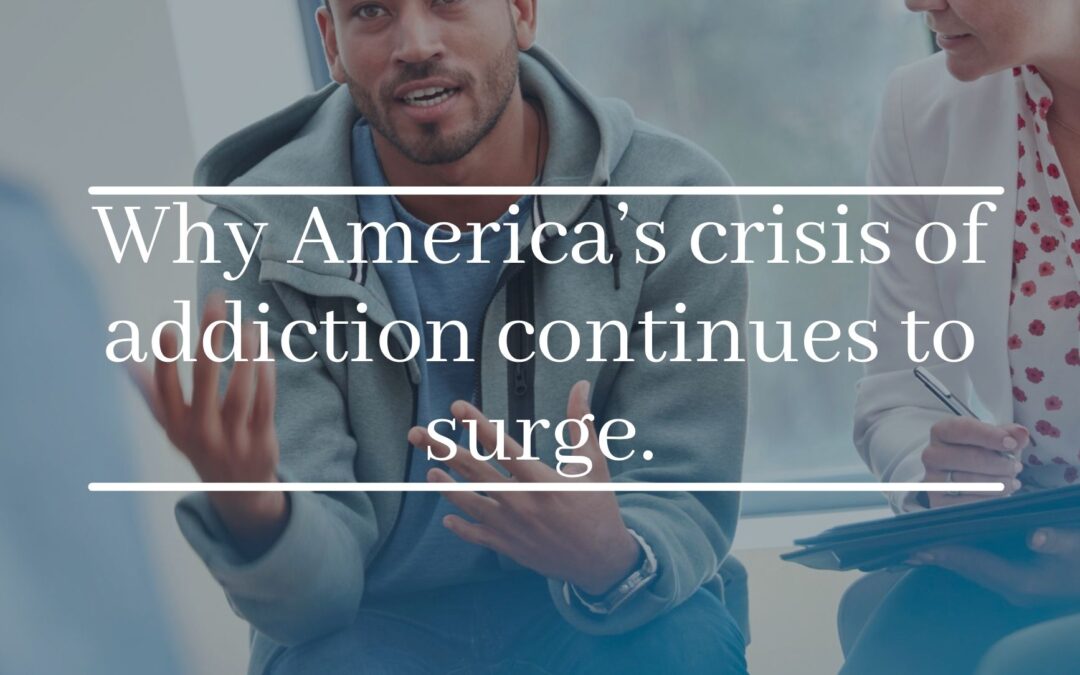Addiction is a disease with far-reaching implications on the individuals struggling under its weight. It requires support, and resources to create better outcomes for addiction sufferers. Yet many who need help don’t receive it. Further, many won’t seek out the help they desperately need.
“Addiction is so much more common and pervasive an issue than society thinks.” — Sarah Hollowell
According to the National Survey on Drug Use and Health conducted in 2018, over 21 million Americans were diagnosed with a substance use disorder. That’s an increase from the previous year by roughly 1.3 million. Even though the issue continues to expand, only about 1 in 10 individuals with addiction receive any sort of treatment at a facility, with 60% of those who were perceived as needing treatment making no effort to get help.
Why is it that people in need of treatment often go without? The short answer is often due to stigma. The fact that 3 in 10 Americans believe that recovery from drug addiction is impossible is simply heartbreaking.
 The progress made in removing the stigma around substance use disorders has been disappointingly small. Addiction sufferers continue to be vilified and blamed for their disease regardless of the medical backing showing that addiction is a complex brain disorder with behavioral components.
The progress made in removing the stigma around substance use disorders has been disappointingly small. Addiction sufferers continue to be vilified and blamed for their disease regardless of the medical backing showing that addiction is a complex brain disorder with behavioral components.
But it isn’t just the censure of public opinion damaging the forward momentum regarding addiction stigma. It rests as well with our healthcare providers and our justice system where the prevailing sentiment continues to point toward addiction as being proof of moral weakness and a failing of character. We have effectively criminalized a disease and continue to punish the people who live with it, not just in prisons and jails but also in our health care systems. If that seems absurd, you’re not alone.
“The opposite of addiction is connection.” — Johan Hari
Though it is not true of all healthcare workers, there are plenty who still see a patient’s drug or alcohol problem as the fault of the person suffering regardless of the reality that they are well positioned with the facts of addiction. This prevailing mindset leads to substandard care and sometimes outright rejection of those seeking treatment. Emergency room staff will sometimes kick out individuals showing signs of acute intoxication or withdrawal symptoms on the assumption that they are dangerous and seeking drugs.
Biased mindsets of professionals pose another problem. In the event that a hospital is overtaxed, the direction of lifesaving personnel and resources will often not be directed towards the individual with obvious drug problems. It is such a damaging mind-set. It sets a precedent that addiction sufferers are less deserving of saving. The actions of healthcare professionals carry so much weight, and for all those who witness this sort of treatment of individuals dealing with addiction it only serves to solidify the polarizing dichotomy. It serves to strip people with addictions of their dignity. It is dehumanizing and devaluing. It is isolating.
“It’s not a matter of willpower or a lack of a moral compass.” — Brian Lewis
When people are stigmatized and rejected by those within healthcare – those whose life purpose is associated with caring – it cuts very deep indeed. Addiction sufferers internalize these instances of rejection and hostility from those who are supposed to help. They have been treated as undeserving, and the shame and isolation which accompanies it is suffocating. That’s how many sufferers with this disease die. They die from stigma and the isolation and self-harm that follows. And yet we wonder why so many refuse to seek treatment.
Missteps on the road to recovery should draw attention to an increased need for support, not punishment or isolation. The way forward is in removing the invisible barriers between addiction sufferers and the general public with real information. Advocacy groups give a voice to those who would speak out, but speaking openly is not enough. If we continue to rely on damaging drug policies and the weaponization of social stigma, America’s crisis of addiction will continue to surge.
Resources
https://www.drugabuse.gov/about-nida/noras-blog/2020/04/addressing-stigma-surrounds-addiction
https://www.statnews.com/2020/12/08/stigma-weaponized-helps-fuel-addiction-crisis/
https://americanaddictioncenters.org/harm-reduction/stigma-of-addiction
https://www.rehabs.com/blog/this-philosopher-says-addiction-stigma-prevents-recovery/
https://www.hazeldenbettyford.org/recovery-advocacy/stigma-of-addiction
https://pubmed.ncbi.nlm.nih.gov/20005692/
https://www.rehabs.com/blog/science-shows-drug-cravings-linger-from-the-grave/
https://drugabuse.com/addiction/stigma/
